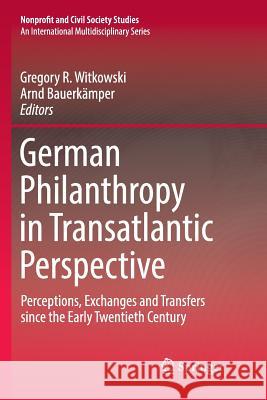German Philanthropy in Transatlantic Perspective: Perceptions, Exchanges and Transfers Since the Early Twentieth Century » książka
topmenu
German Philanthropy in Transatlantic Perspective: Perceptions, Exchanges and Transfers Since the Early Twentieth Century
ISBN-13: 9783319821986 / Angielski / Miękka / 2018 / 250 str.
German Philanthropy in Transatlantic Perspective: Perceptions, Exchanges and Transfers Since the Early Twentieth Century
ISBN-13: 9783319821986 / Angielski / Miękka / 2018 / 250 str.
cena 442,79
(netto: 421,70 VAT: 5%)
Najniższa cena z 30 dni: 424,07
(netto: 421,70 VAT: 5%)
Najniższa cena z 30 dni: 424,07
Termin realizacji zamówienia:
ok. 22 dni roboczych.
ok. 22 dni roboczych.
Darmowa dostawa!
Kategorie:
Kategorie BISAC:
Wydawca:
Springer
Seria wydawnicza:
Język:
Angielski
ISBN-13:
9783319821986
Rok wydania:
2018
Wydanie:
Softcover Repri
Ilość stron:
250
Waga:
0.37 kg
Wymiary:
23.39 x 15.6 x 1.4
Oprawa:
Miękka
Wolumenów:
01
Dodatkowe informacje:
Wydanie ilustrowane











